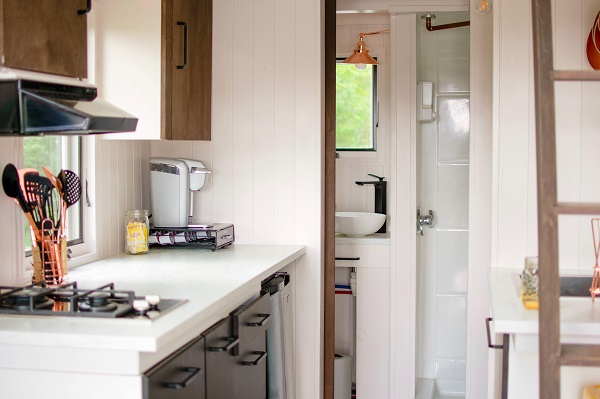A boiler is an indispensable apparatus in any home. Not only do they provide warm water for use, but we also get the much-needed heat through them. No one wants the house to become a cold room during the winter, so, understandably, you are looking out for one already. Choosing the best boiler for your home can be somewhat tricky, seeing that boilers are in diverse types, sizes, and fuels. Not to worry, after reading this article, you will be right on course to choosing the best boiler for your house.
Types of Boilers
Knowing about the different types of boilers makes the problem of choosing half solved. Boilers are of three categories, namely the combination boiler, system boilers, and regular boilers.
The first is ideal for small homes with a single bathroom and low water requirements. It connects to the main, leaving out the need for an overhead tank.
System boilers are suitable for homes with multiple water outlets and moderate water requirements. Although they require a hot cylinder, they are yet compact.
Regular or conventional boilers require much space. There is a need for a separate heating tank. If your house is spacious and you anticipate high consumption, this type is ideal for you.
Considerations in Choosing the Best Boiler for Your House
Here are seven things to consider to choose the best boiler for you.
Home size
The size of your home also affects the space available for installing a boiler. For example, if you own a small apartment with a single bathroom, the combi boiler would be a perfect choice.
Hot water requirements
The quantity of hot water you would require in a day largely depends on the family size. If you have a large family, you must have hot water available at any time. That would require having a tank that holds such making available for use always. The regular boiler would be best to tend to such needs.
The fuel type
Boilers require fuel for heating, and options include LPG, coal, electricity, and solar power. These all have their advantages and let downs. Put in mind the cost of refuelling overtime. Each fuel type varies in its pricing. Most importantly, consider the environmental impact of each fuel before choosing one. Set your heart to one with low carbon emission.
Boiler efficiency
Saving energy should be a concern to you, knowing that it would affect your running cost. You would want a boiler that does the job with minimal fuel consumption. Besides, the ecosystem is of great concern, now more than ever. The boiler should be fuel-efficient, emitting low CO2 while functioning. These include the low temperature and condensation boilers. While these options will require digging deep into your pockets, they are efficient and cost-saving in the long run.
Budget
As with everything you are to purchase, you should consider what you have in your purse before choosing a boiler. Compare the cost of new boilers and see which fits into your budget and choose the best boiler with that in mind.
Again, do not fail to factor in the running cost of the boiler. With time, it would amass to be a sizable sum. What are your alternatives for financing it if what you desire goes beyond your finances?
Future tech consideration
As the quest to be more eco-friendly progresses daily, new energy sources will come up. Moreover, the government could pass laws on fuels as they deem fit to save the environment. That can set you looking for another boiler to conform with demands. To avoid such an event, you should consider a boiler that can adapt to different fuels or energy options.
Warranty and after-sales services
Seek a product with a warranty. Boilers don’t come too cheap, so be sure your purchase is not a gamble. Also, where you buy your boiler has much to do with the satisfaction you get. Ensure you go to a retailer with a penchant for good customer relations and after-sales services. An ideal place to begin searching is at iHeat.
Conclusion
Although we have highlighted several things to consider to choose the best boiler for your home, it’s up to you to ensure your house is ready for one. To make sure, invite a heating engineer to inspect your home. Are there chimneys and other means of taking care of condensates? Is your home insulated enough to retain heat or not? Let the professional answer that for you and prefer solutions if there is need for one.
Thanks for reading and we hope you found this useful. You might also be interested in these related home maintenance articles:
Different Types of Boiler & How to Choose One
Organise Your Life: Choosing The Best Boiler For Your Home
Tips For Maintaining Your Heating & Cooling Systems
A Tidy Mind xx

